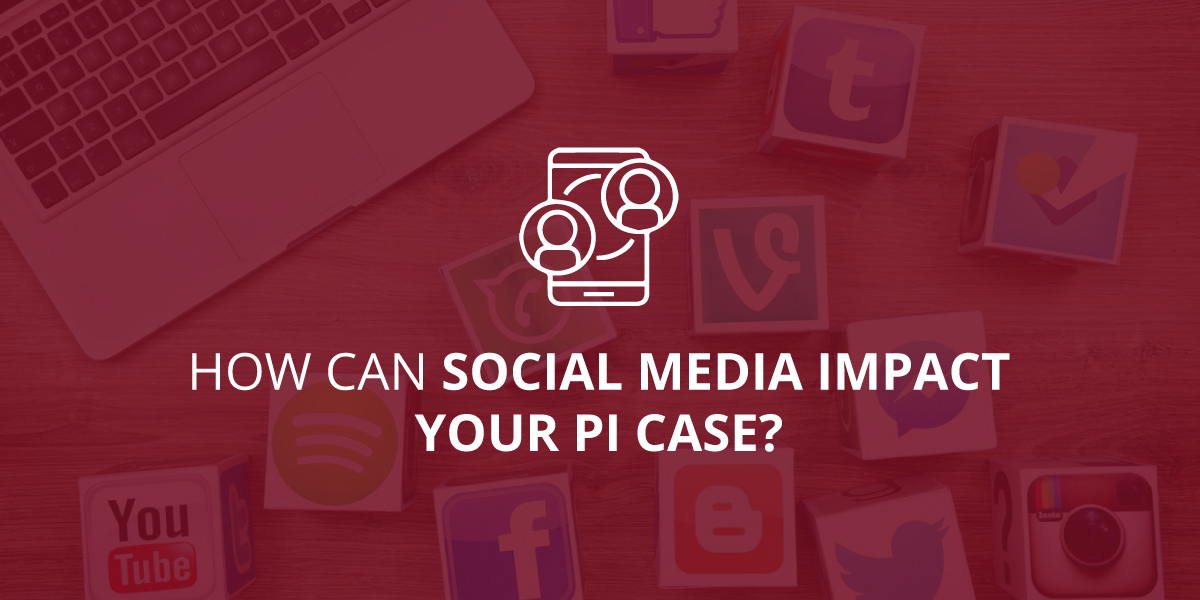Table of Contents
Toggle
Social media has become a significant part of our day-to-day lives. Most teens and adults have at least one social media account, and the particularly savvy and active users have accounts on multiple platforms.
You may be used to posting daily updates or about important life events. However, when it comes to injuries you suffered in an accident, you need to think twice before uploading photos, videos, statuses, or comments. Online information can be used like any other type of admissible evidence and it has the potential to negatively affect your personal injury case.
Ways in Which Social Media Can Impact Your Personal Injury Case
Your social media posts may seem insignificant or harmless to you. However, insurance defense attorneys have learned that seemingly innocent posts have the potential to be devastating to a claim. The biggest risk is that your own content will contradict the claims you make in your case. Your pictures, photos, location check-ins, and statements may demonstrate you have different physical capabilities than you claim to the insurer or in court.
You may allege that you have undergone profound pain and suffering during your recovery. However, your virtual persona is always smiling, vacationing, hanging out with friends, or traveling. Your online activity may cause jurors or adjusters to doubt you are in as much pain as you say or presume that you are leading an active and full life, despite your alleged suffering.
Another risk is that your social media content will show that there may have been an intervening cause for your injuries or for why your condition has gotten worse. An intervening cause is another factor that occurred after the original incident and the other party can use it to say they are not responsible for your current condition. The at-fault party and their insurer can use this to claim they do not owe you compensation or that they owe you far less than you demand.
Potential Consequences of Contradictory Social Media Content
If your social media content contradicts your legal claims, various things can happen. The other party can use this evidence to ask for the case to be dismissed. The insurer may use it to deny your claim.
If the online content is not enough for an insurance claim denial or lawsuit dismissal, it can still be used to weaken your case and limit your financial recovery. For example, if your photos and statuses show that you are not in as much pain as you say, this can lead to a lower insurance settlement or court award.
The at-fault party and their insurer may also use your social media content to support allegations of comparative negligence. They may argue that the evidence proves you were also careless and therefore partly responsible for your own injuries. If an insurer or court agrees, this can significantly decrease your compensation.
Social Media Best Practices During Your Personal Injury Case
If you are injured in an accident and are a social media user, talk with your lawyer about how to handle your accounts during your claim.
Your attorney may recommend that you:
- Do not post anything about being in an accident.
- Do not post any photos or videos of the incident or your injuries.
- Do not post any content that reflects your physical or mental condition.
- Do not post about the insurance claim or lawsuit.
- Tighten your privacy settings to allow only your contacts to see your content.
- Do not accept friend or connection requests from anyone you do not know well.
- Ask friends and family members to keep their questions and comments offline.
- Ask friends and family members to not tag you in posts.
- Do not delete anything without speaking to your personal injury attorney first.
Contact Donaldson Law, LLC for Help
If you were injured in an accident and are unsure of how to handle social media, or you fear your social media posts could impact your insurance claim, call the Donaldson Law, LLC right away to speak with an experienced Denver personal injury attorney.
You can reach attorney Jennifer Donaldson through the online form or call (303) 458-5000 to schedule an initial consultation.

















